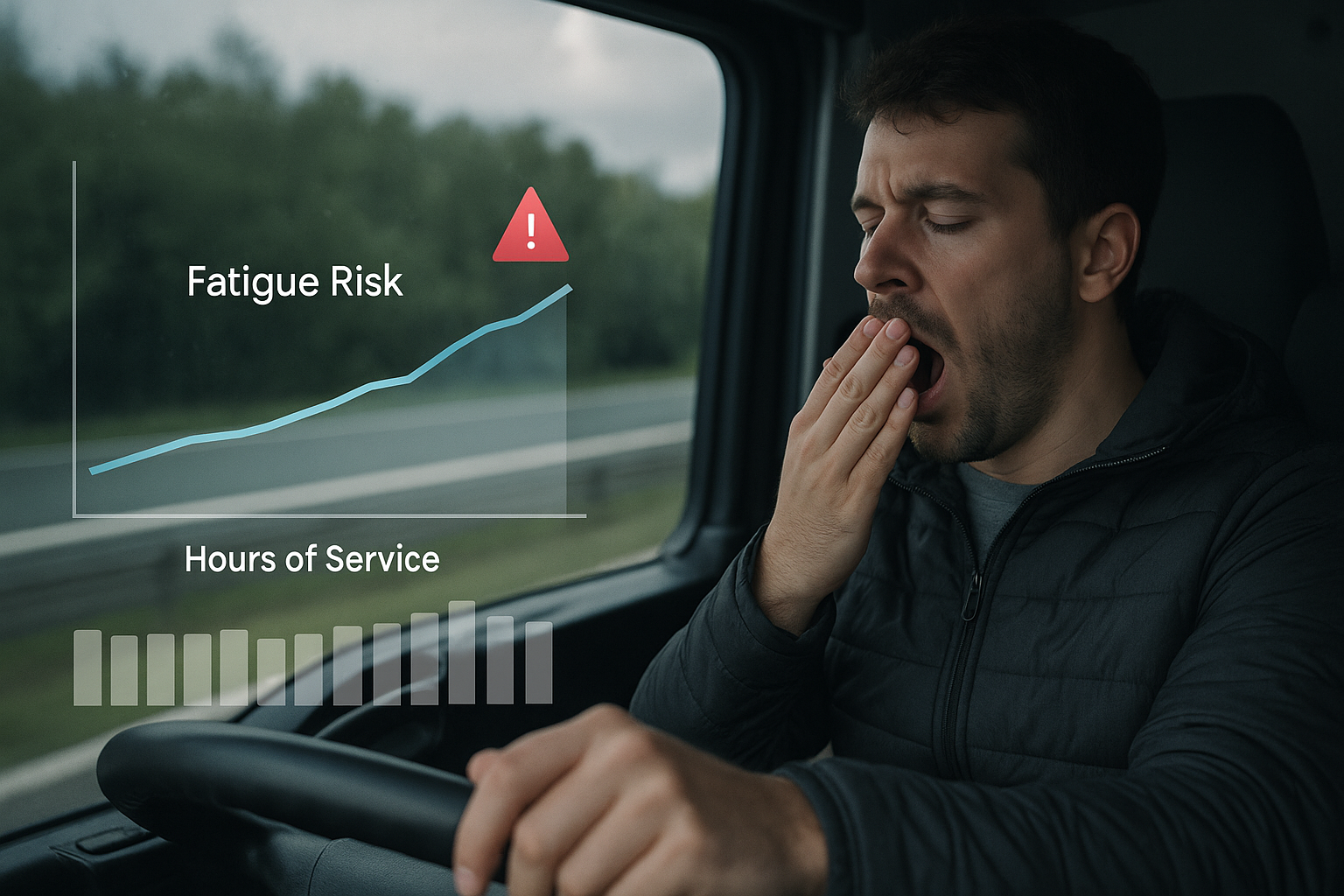Direct Vision Standard (DVS): What Does It Mean For Your Fleet?
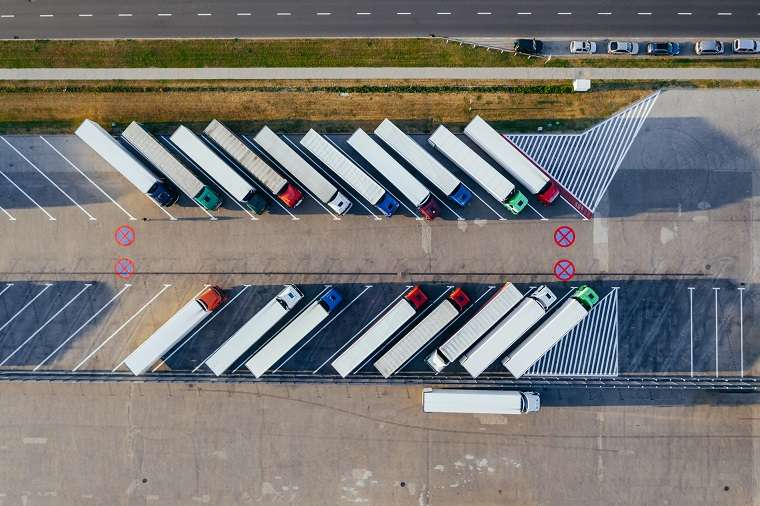
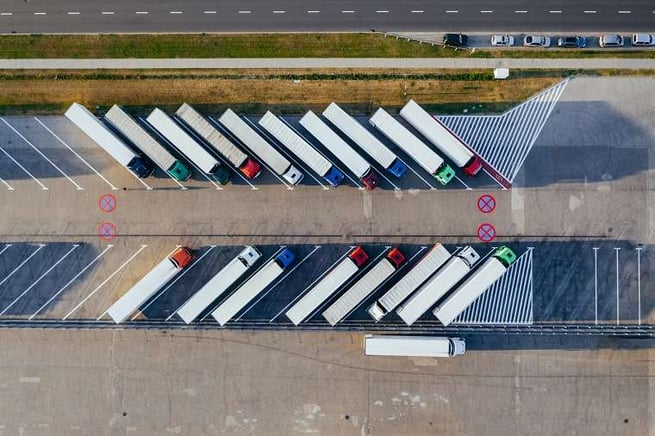
TfL Direct Vision Standard (DVS): What it is and how it affects your business
The Mayor and Transport for London (TfL) have introduced the Direct Vision Standard (DVS) legislation which was originally scheduled to go into effect on 26th October 2020, but has now been postponed to February 2021 due to Coronavirus. The goal is to make London safer for road users by improving visibility for heavy goods vehicle (HGV) drivers. This level of legislation will be a global first and is likely to be replicated in busy cities worldwide.
UPDATE: Enforcement for Direct Vision Standard (DVS) guidelines for heavy goods vehicles has been postponed to February 2021 due to the Coronavirus (COVID-19) public health crisis. Read the TfL update on the delayed timeline for details.
Here’s what you need to know about Direct Vision Standard and the HGV Safety Permit.
What is the Direct Vision Standard (DVS)?
The official TfL issued video on the Direct Vision Standard and HGV Safety Permit:
Direct Vision Standard (DVS) is a measure of how much a driver can see directly through their Heavy Goods Vehicle (HGV), or Large Goods Vehicle (LGV), or cab windows. It indicates the level of risk to vulnerable road users, such as people walking and cycling near the vehicle.
Originally from 26th October 2020, now February 2021, DVS legislation requires that all HGVs weighing more than 12 tonnes entering or operating in Greater London will need to hold a valid HGV Safety Permit. DVS is also referred to as the HGV Safety Permit Scheme.
The DVS scheme was launched to reduce road collisions involving HGVs and vulnerable road users.
“HGVs were involved in 63% of fatal collisions with cyclists and 25% of pedestrian deaths. This is despite HGVs making up only 4% of miles driven in London city.”
– Statistics from TfL and the Mayor of London’s office
Blind spots were identified as a major contributory factor in fatal collisions. The DVS scheme has been designed to eliminate blind spots and equip drivers with the tools needed to maneuver safely.
All businesses and individuals operating vehicles weighing over 12 tonnes that drive in Greater London will need a valid HGV safety permit. The HGV Safety Permit scheme will be in operation 24 hours a day, every day of the year.
DVS Star Rating and Safe System
By October 2020, now postponed until February 2021, all HGVs will need to achieve a 1-star rating, rising to 3-star rating in 2024.
The Direct Vision Standard uses a star system to rate HGVs over 12 tonnes from 0 (poor) to 5 (excellent), based on how much a driver can see directly through their cab windows.
All HGV operators need to apply for an HGV safety permit for their vehicles to drive in London. You will be granted a permit if your vehicle has a DVS rating of one star and above.
Drivers in a zero-star vehicle will have poor direct vision and will not be able to see the head and shoulders of a pedestrian who is less than 4.5m away from the cab side. Drivers in a five-star vehicle will have good direct vision and will be able to see pedestrians, motorists and cyclists who are directly next to the cab side of their vehicles.
Vehicles rated zero will need to improve the overall safety of their vehicle before October 2020 by fitting a Safe System.
Each vehicle type/model per manufacturer will already have a DVS star system. If you’re not sure of your vehicle rating, you can contact your manufacturer.
How do I make my heavy goods vehicle DVS compliant?
If your HGV is rated one to five stars, you can apply for an HGV Safety Permit without the need to provide any additional evidence. If your HGV is rated zero stars, you will need to make your vehicle safer by fitting it with a Safe System before you can apply for a permit.
The ‘safe system’ builds on best practices from existing, industry-recognized schemes.
Safe System measures include:
- Spot elimination and minimization via camera, mirrors, and sensor systems
- Warning of intended maneuver via audible warning signal and stickers
- Minimizing the physical impact of a hazard e.g. side underrun protection
- The HGV Safety Permit will be issued by Transport for London (TfL) and applying is free of charge.
- Refer to TfL’s guidance for operators for more information about how to make a zero–star rated vehicle compliant, and ready to apply for a permit.
- What is the penalty for driving an HGV that doesn’t meet DVS requirements?
- From 26 October 2020, now postponed until February 2021, all zero-rated HGVs will be banned or restricted from London roads unless they have a Safe System. Fines of £550 will be issued to operators of any lorry entering London without an HGV Safety Permit. TfL can also revoke or suspend a permit if a vehicle that has been granted a permit is later found to be in breach of the permit terms.
- Learn more about the Safe System requirements and how you can apply for an HGV safety permit.
Refer to TfL’s guidance for operators for more information about how to make a zero–star rated vehicle compliant, and ready to apply for a permit.
What is the penalty for driving an HGV that doesn’t meet DVS requirements?
From 26 October 2020, now postponed until February 2021, all zero-rated HGVs will be banned or restricted from London roads unless they have a Safe System. Fines of £550 will be issued to operators of any lorry entering London without an HGV Safety Permit. TfL can also revoke or suspend a permit if a vehicle that has been granted a permit is later found to be in breach of the permit terms.
Learn more about the Safe System requirements and how you can apply for an HGV safety permit.

Book a demo today!
SureCam offers GPS vehicle tracking, live video, and real-time alerts for efficient fleet management. Get a Demo

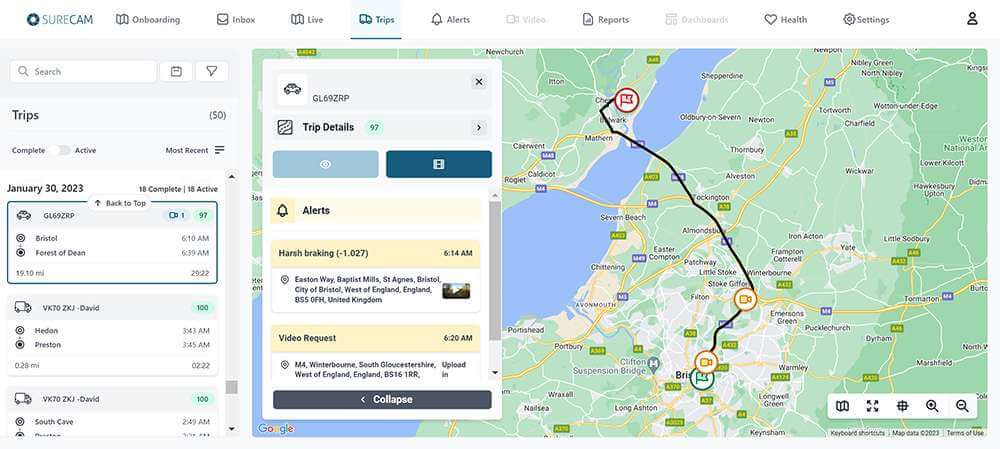

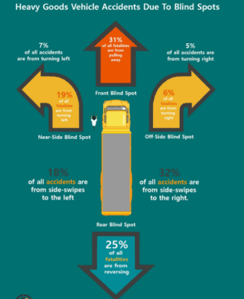
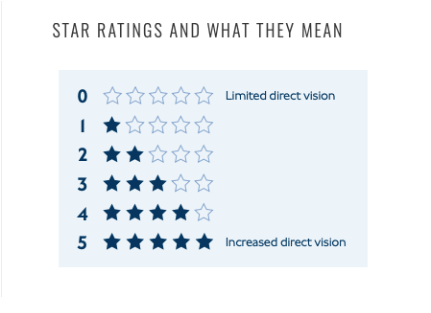
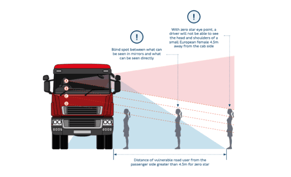
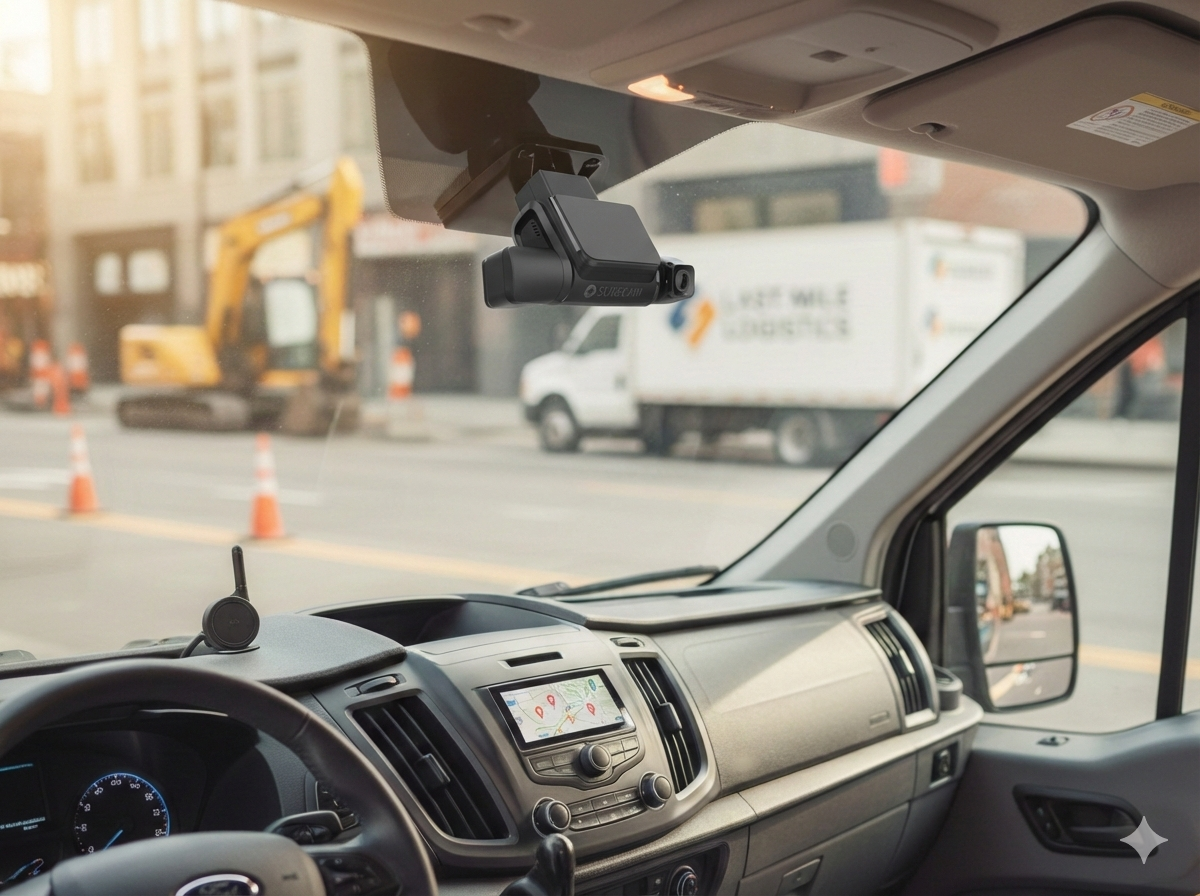
.png)
